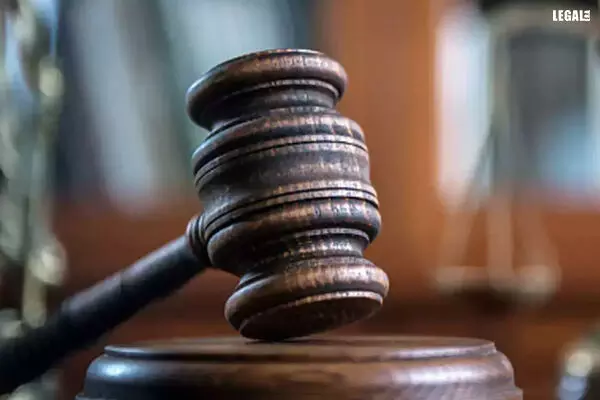- Home
- News
- Articles+
- Aerospace
- Artificial Intelligence
- Agriculture
- Alternate Dispute Resolution
- Arbitration & Mediation
- Banking and Finance
- Bankruptcy
- Book Review
- Bribery & Corruption
- Commercial Litigation
- Competition Law
- Conference Reports
- Consumer Products
- Contract
- Corporate Governance
- Corporate Law
- Covid-19
- Cryptocurrency
- Cybersecurity
- Data Protection
- Defence
- Digital Economy
- E-commerce
- Employment Law
- Energy and Natural Resources
- Entertainment and Sports Law
- Environmental Law
- Environmental, Social, and Governance
- Foreign Direct Investment
- Food and Beverage
- Gaming
- Health Care
- IBC Diaries
- In Focus
- Inclusion & Diversity
- Insurance Law
- Intellectual Property
- International Law
- IP & Tech Era
- Know the Law
- Labour Laws
- Law & Policy and Regulation
- Litigation
- Litigation Funding
- Manufacturing
- Mergers & Acquisitions
- NFTs
- Privacy
- Private Equity
- Project Finance
- Real Estate
- Risk and Compliance
- Student Corner
- Take On Board
- Tax
- Technology Media and Telecom
- Tributes
- Viewpoint
- Zoom In
- Law Firms
- In-House
- Rankings
- E-Magazine
- Legal Era TV
- Events
- Middle East
- Africa
- News
- Articles
- Aerospace
- Artificial Intelligence
- Agriculture
- Alternate Dispute Resolution
- Arbitration & Mediation
- Banking and Finance
- Bankruptcy
- Book Review
- Bribery & Corruption
- Commercial Litigation
- Competition Law
- Conference Reports
- Consumer Products
- Contract
- Corporate Governance
- Corporate Law
- Covid-19
- Cryptocurrency
- Cybersecurity
- Data Protection
- Defence
- Digital Economy
- E-commerce
- Employment Law
- Energy and Natural Resources
- Entertainment and Sports Law
- Environmental Law
- Environmental, Social, and Governance
- Foreign Direct Investment
- Food and Beverage
- Gaming
- Health Care
- IBC Diaries
- In Focus
- Inclusion & Diversity
- Insurance Law
- Intellectual Property
- International Law
- IP & Tech Era
- Know the Law
- Labour Laws
- Law & Policy and Regulation
- Litigation
- Litigation Funding
- Manufacturing
- Mergers & Acquisitions
- NFTs
- Privacy
- Private Equity
- Project Finance
- Real Estate
- Risk and Compliance
- Student Corner
- Take On Board
- Tax
- Technology Media and Telecom
- Tributes
- Viewpoint
- Zoom In
- Law Firms
- In-House
- Rankings
- E-Magazine
- Legal Era TV
- Events
- Middle East
- Africa
NCLAT rules on power to recall by NCLT

NCLAT rules on power to recall by NCLT
The appellant cited the 2016 tribunal rules
The National Company Law Appellate Tribunal (NCLAT) bench comprising Justice Rakesh Kumar Jain (Judicial Member) and Dr. Alok Srivastava (Technical Member) has held that the National Company Law Tribunal has the power to recall its order of closing the right to file the reply.
The move followed when NCLT, New Delhi, vide its July 2021 order closed the right to file the reply of the Corporate Debtor. The appellant then applied to recall the order.
Thereafter, vide its March 2022 order, NCLT dismissed the application on the ground that the tribunal was not vested with any power to recall or review its order. It said that to file the reply, the appellant was granted sufficient opportunities.
However, the appellant contended that the tribunal had the jurisdiction to recall its order under Rule 11 of NCLT Rules, 2016. Also, since, the tribunal had not decided on any issue on merits, it had the power to recall its order.
On the other hand, the respondent contended that the act and conduct of the appellant were such that they did not warrant any relief and he had not availed of the opportunities given to file the response.
The NCLAT held that there was a difference between recalling an order and reviewing an order where an issue was decided on merit by the tribunal. It allowed the appeal and directed the tribunal to consider the application on its merits.
It stated, "No doubt that the Adjudicating Authority has no jurisdiction to review its order after deciding a substantial issue. But it has the jurisdiction to recall the order of the kind in dispute, where the right to reply was closed by an order on the ground that the opportunities granted were not availed."



